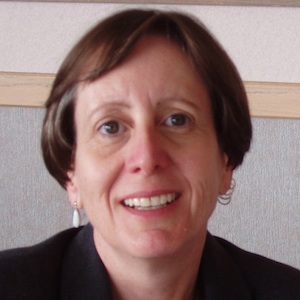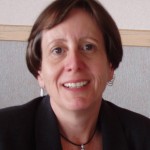An Interview with Catherine Ryan Hyde

We’ve all heard the saying “writers write,” but today writers often find themselves doing so much more than just writing.
Catherine Ryan Hyde is a perfect example of a writer with a well-rounded career. She is the author of 22 novels, including the blockbuster Pay it Forward, which became a Hollywood hit and spawned a global phenomenon. She has also written and published scores of short fiction, launched a career as a public speaker and both teaches and edits. Catherine recently added two new “firsts” to her list. She published a non-fiction book called The Long, Steep Path: Everyday Inspiration from the Author of Pay It Forward and co-authored a book—How to Be a Writer In the E-Age…and Keep Your E-Sanity.
How to Be a Writer In the E-Age…and Keep Your E-Sanity is written specifically for today’s writer. What were your ultimate goals for the book? These days, can writers afford to ‘just write’? How has the game changed over the course of your career?
Yes, writers write. But that was never all they did. Writers always had to promote. And we always (well, usually) had some form of social life, but it was more the in-person variety. Most of my friends are online now, and even those I know in real life usually communicate with me online. If anything, I find that to be a time-saver. I think the disconnect is that many newer authors see their online platform as homework. To me it’s community, and communication. I’d no sooner give it up then I’d give up stopping to eat, or to take a walk outdoors.
I hate airports, I hate planes, I’m not too fond of hotel rooms…so any promotion I can do in my living room, in my super-comfy chair, is heaven to me.
Quite frankly, all of the changes over the course of my career have been to my liking. If you think promoting online is time-consuming (I’d estimate I give it about an hour on the average day) you should try a multi-city author tour. And at the end of those ten or twelve grueling days, you’ll probably have reached only a tiny fraction of those you could have reached online. I hate airports, I hate planes, I’m not too fond of hotel rooms…so any promotion I can do in my living room, in my super-comfy chair, is heaven to me. (My dog likes it better, too.)
I don’t think writers could ever afford to just write. Not after their books were published. There was always that shock of finding out how much this is a business, not just a creative pursuit. And that’s the answer to your question of what I hoped to accomplish with How to Be a Writer In the E-Age…and Keep Your E-Sanity. My co-author Anne R. Allen and I wanted to help newer authors with that big picture, so it didn’t come as too much of a daunting surprise down the line.
Do you have a tried, tested and true writing process? Do you consider yourself a fast or slow writer? Are you a ‘plotter’ or a ‘panster’? At what point do you seek feedback from beta readers or editors? Is your process the same or different for novels and short stories?
I believe it was Somerset Maugham who said, “There are three rules to writing the novel. Unfortunately, no one knows what they are.” I probably do have a tried-and-true writing method, because it seems to go a bit more smoothly with each passing novel, but I’m not sure I know what it is. It’s less something I control and more something I just stay open to, or allow.
I’m definitely a very fast writer. A full-length novel usually takes me in the neighborhood of five months, and I often write ten or more pages a day, then take breaks when it’s not flowing. I’m not trying to rush, and I’m not suggesting that speed to others. It’s just how my writing process is, and always has been.
I probably do have a tried-and-true writing method […] but I’m not sure I know what it is. It’s less something I control and more something I just stay open to, or allow.
As far as the plotter/panster issue, there is definitely room in between. I try to pin down where I’m going thoroughly enough so that I don’t get lost and end up somewhere undesirable, but I also leave plenty of room to be surprised. Characters will surprise you if you don’t put them in too snug a box.
I don’t seek any other eyes for my work until I’ve polished a manuscript so many times that I really don’t feel I have anything more to offer it. Then my agent is my first beta reader, followed by my editor, copyeditor, etc.
And the only real difference between the novel and short story process, for me, is that I can start writing a short story almost immediately upon being struck with an idea, because there’s so much less complex “middle” to work out first. Which is a nice break for a mostly-novelist.
What are your thoughts on writing education and professional development? Aside from extensive reading and plenty of practice, are you a fan of MFA programs? Workshops or online courses? Writers’ conferences? Mentorship? What forms of study have you pursued, yourself?
None of them. So I don’t know that I’m really qualified to offer an opinion. Well…when I say “none of them,” I mean of the educational variety. I’m only a high school graduate. I cut my teeth in a read-and-critique writers workshop. And the Santa Barbara Writers Conference was a help when I was newer. The mentorship I found in both those places was essential. I definitely think there’s a phase in every writer’s career when it’s important not to work in a vacuum. A jury of your peers will do the work a world of good.
Other than that, I’m mostly a fan of lots of reading and practice. I think writing classes and courses may be useful to some. If you have the raw talent, they may help hone it, but they certainly can’t provide it. And I feel I’m living proof that they are not a necessary part of the process.
With many years’ writing experience behind you, when you look back at your earliest work, what were the biggest mistakes you made in the areas of craft, writing process, and publishing?
A lot of my earlier works were short stories. And I think the mistake I made with the novels is that they read too much like long short stories. I was on a breakneck pace. They were very slim, and didn’t have quite the same detail as far as watching characters and relationships blossom and change. Of course, there are those who like my earliest work best, so who’s to say?
A lot of my earlier works were short stories. And I think the mistake I made with the novels is that they read too much like long short stories.
As far as the publishing goes, it would be easy to second-guess every step of the process. My first publisher went belly up. Simon & Schuster was ultimately a bad match for my work. Doubleday dropped me because sales didn’t match advances. My young adult novels never really found their audience. But hindsight doesn’t help much, and I’m not sure it’s really fair to call those situations mistakes. I mean…if you don’t try, how will you ever know?
Some say short stories are making a comeback; some say few read them. What do you love most about the short form? How have literary journals played a part in your writing career, and would you encourage all writers to read and write short fiction?
You know, almost as long as I’ve been in this business we’ve been hearing mixed messages about short stories. For years they were called a dead form, yet there was always a collection on The New York Times list, or news that a publisher had just paid big bucks for one. I’m hoping the Kindle Single will revive them, but the jury is still out on that. We’re such a busy society. I can’t imagine why we don’t just eat them up.
And that’s what I love most about the short form. A short story is a complete story, yet it fits into a busy life. I also find them handy for the kind of reading that gets my own ideas flowing, because I can read half a dozen complete works in an afternoon. Try that with doorstop novels.
That said, short stories played a hugely important role in my being “discovered” as an author. I couldn’t get agents to pay any attention to me and my novels—until I had a handful of short stories published in literary magazines. Then their doors flew wide open.
So . . . I don’t know that there’s any such thing as a one-size-fits-all in this business, but based on my own experience, I do highly recommend short fiction for those who want to carve out their own publishing credits and jumpstart their careers.










